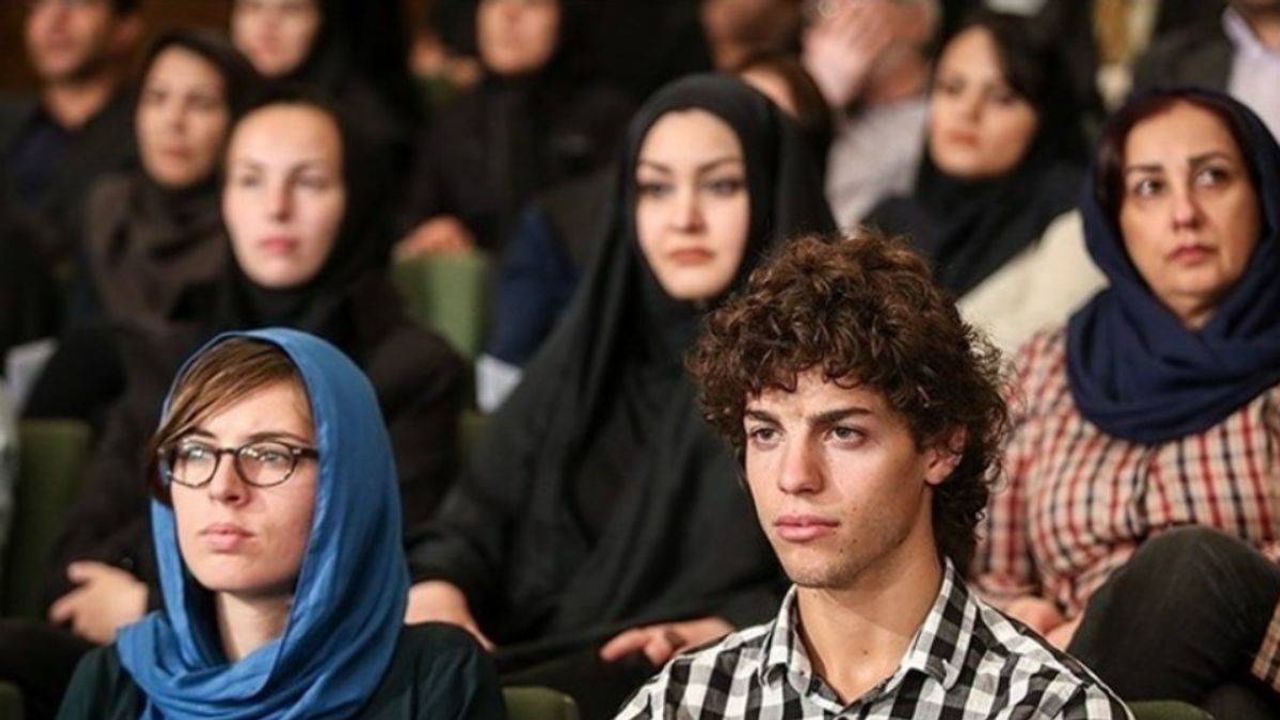A new list of restrictions announced for students at Iranian universities is being debated.
At the beginning of the new academic year, Iran's Health Ministry issued a new list of instructions for medical students, banning male students and medical assistants from having curly hair.
The new restrictions were announced after parliament passed a law on September 20 that imposes harsher penalties on women who do not comply with the mandatory headscarf and dress code.
On Monday, the Etemad Daily newspaper published details of the health ministry's instructions requiring medical school students to be graded on their compliance with the headscarf law.
BAN ON WEARING CURLY HAIR AND BRACELETS
Most of the announced restrictions target women. However, a ban on "curly hair" and "wearing bracelets" was explicitly announced for men.
In addition to the mandatory headscarf, the newspaper reported that other obligations were imposed on women, such as a ban on wearing false eyelashes, nail extensions, tucking pants into boots and wearing lace stockings.
"Wearing clothes with printed photos of women, love quotes, profanity, funny and meaningless pictures, anti-religious symbols, rap symbols and heavy metal bands" is also banned.
The new order also bans "tattoos on the face (especially tattoos of the lips, eyebrows and eyes), visible parts of the body (hands, face, etc.) and piercings of body parts such as nose rings."
REACTION TO BETTER INTERNET FOR FOREIGNERS
A decision by Iranian authorities to offer foreign tourists "special SIM cards" that will allow them to use unlimited internet while visiting the country has sparked outrage among Iranians who struggle to access reliable internet.
Tourism ministry deputy Ali Asghar Shalbafan told the ISNA news agency on Sunday that foreign tourists will be issued "unlimited tourism SIM cards".
The decision comes amid ongoing internet blackouts since anti-establishment protests swept the country last September following the death in custody of Mahsa Amini. Social media platforms and messaging apps such as Instagram and WhatsApp were also blocked.
The decision drew negative reactions from the public and politicians, with many calling it a "surrender law".
Aftab newspaper criticized the decision with the headline "Tourism SIM card or simply capitulation?"
"It is not right to offer extra facilities to others while Iranians lack basic internet access. Offering special deals to tourists is good, but not at the expense of the rights of Iranian citizens."
Iranian lawmaker Mouin-odin Saidi also criticized the government's decision, calling it an "internet capitulation."
"How can they ensure unlimited access to social media for outsiders when millions of Iranians who depend on these platforms for income cannot access the internet?" ILNA news agency quoted Saidi as saying.
"JIHAD OF CHILDBEARING" MARCH
Photos published in local media showing a large group of women in black chadors pushing prams during an official military parade in central Yazd have drawn criticism and ridicule among Iranians.
The photos were first published by the country's official news agency IRNA and the semi-official ISNA news agency. The images show small white flags with the words "childbearing jihad" written in Farsi on each stroller.
Pro-regime outlets, such as the newspaper Khamenei, republished the photos and praised the move as a landmark example of obedience to the country's religious leader's demand to increase the birth rate.
BIRTH CONTROL BAN
In recent years, the authorities in Iran have carried out large-scale campaigns to increase the country's population as a strategic policy to maintain its authority in the country. The authorities have also banned the free distribution of contraceptives and voluntary sterilizations.
But in response to the official media, some Iranians took to Persian-language social media to denounce the mothers' march as a form of child abuse.
One Iranian social media user posted on X: "In this country, there are more than a million soldiers ready to fight to protect women and children from the battlefield. This march with baby strollers is disrespectful to the military march, disrespectful to mothers and disrespectful to children's rights."
No way! Curly hair ban for male students!
Iran's unrestricted internet for foreigners sparks outrage as pro-regime mothers march in support of 'childbirth jihad'
Trending news

Snoop Dogg to carry the Olympic torch

Lily James Expresses Admiration for Hailey Bieber’s Rhode Skincare Line

Taylor Tomlinson Will Explore Her Faith and Sexuality on Tour!

'Alien mummy' in Peru raises eyebrows

Scandal in the heart of Europe: Child abuse in a church!

Kamala Harris’ Running Mate: Here’s Who Could Be Her VP After Biden Drops Out And Endorses Her






